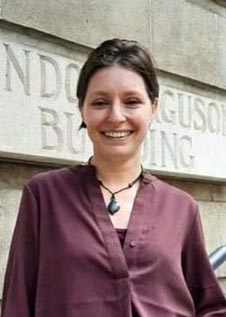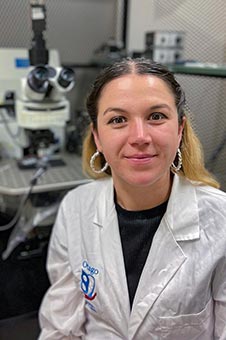For early career researchers, gaining the opportunity to establish your scientific independence can be difficult to say the least. Last November, the Brain Health Research Centre and the Centre for Neuroendocrinology established the Early Career Accelerator Grant specifically to support the next generation of kaipūtaiao.

Dr Joon Kim.
The inaugural 2021 recipients were Drs Joon Kim, Teodora Georgescu, Conor Underwood and Elodie Desroziers. We touched base with several of the recipients to see how their research has since progressed.
Dr Joon Kim (mentored by Dr Karl Iremonger) built 5 units of FED3, a new device designed to dispense and monitor how much food mice consume. Joon worked with Honours student Isaac Tripp to test how motivation to seek food is altered by stress states. Data obtained from the FED device helped Joon obtain a successful Marsden Fast-Start grant.
The FED devices will also be used in the future Marsden funded research and Dr Kim says “This hands-off approach is critical for stress neuroscience research and would not have been possible without these devices and the support from BHRC+CNE.”

Dopamine cells (black) depleted in one half of the brain (left) in a rat with gut dysfunction and Parkinson's disease.
Dr Conor Underwood (mentored by Associate Professor Louise Parr-Brownlie) was able to utilise this grant to cover expenses on a project that characterises the behavioural and histological impact of gut inflammation in Parkinsonian rats.
Conor has completed behavioural analyses and concluded that gut inflammation worsened abnormal forelimb movements in Parkinsonian rats. Conor is currently working to perform a histological assessment of dopamine cell numbers and blood cytokine levels.

Dr Elodie Desroziers.
Dr Elodie Desroziers (mentored by Associate Professor Rebecca Campbell) used her grant to investigate the role of prenatal androgen (PNA) excess on autism-like behaviour development in mice.
It is currently known that exposure to androgen prenatally triggers polycystic ovarian syndrome in females, and is hypothesised to cause autism spectrum disorders in males.
Elodie's study focused on autism-like behaviours in the PNA male and female mice, with the hypothesis that only PNA male would develop autism-like behaviours. Elodie completed 6 months of behavioural experiments and is now in the process of analysing the data she collected.
Dr Teodora Georgescu (mentored by Professor Dave Grattan) used the grant to investigate how the normal fever response is supressed in pregnancy.

Dr Teodora Georgescu.
“The BHRC/CNE grant has helped me set-up an independent line of research which is distinct from current themes in the Grattan laboratory and in the Centre for Neuroendocrinology.” says Dr Georgescu. She has since obtained further funding for this project from Maurice and Phyllis Paykel Trust and recently a University of Otago Research Grant.
“I have just completed the first experiment establishing the fever model in pregnant mice and will be continuing with these experiments over the next 6 months. The BHRC/CNE Early Career Accelerator Grant was therefore the catalyst for developing a novel and distinctive research path for me to lead and take ownership of.”
The Early Career Accelerator Grant provides financial support to postdoctoral and research fellows, enabling them to gather preliminary data to bolster their future chances of obtaining their own research funding.
Previously: Early Career Accelerator Grants for four BHRC researchers